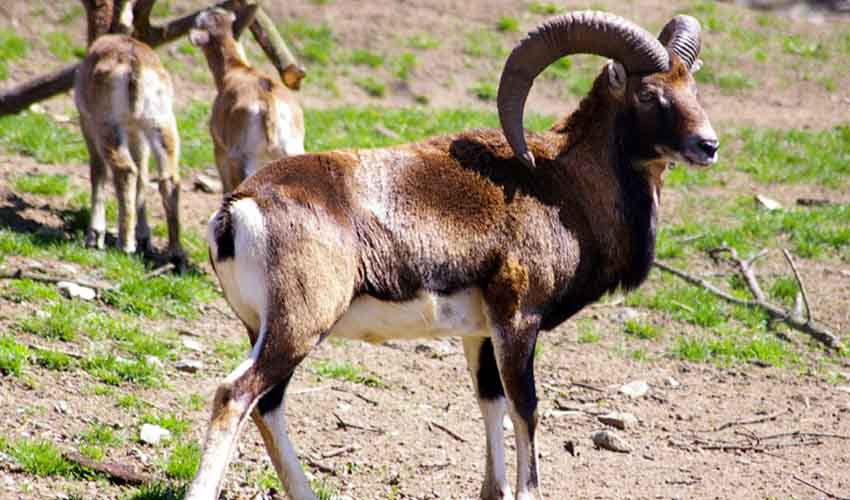A large wild sheep that is native to the mountainous regions of Central Asia. These incredible animals are known for their impressive size and their striking appearance. Their most distinctive feature is their massive, spiraling horns. The male Argali’s horns can grow to be incredibly long, sometimes measuring over 1 meter (5 ft) from tip to tip. These horns are not only a sign of strength but also a way to attract mates, as larger, more impressive horns are seen as a symbol of dominance and good health. Female Argali, on the other hand, have much smaller horns or may not have them at all.
Argali are well-adapted to living in harsh, mountainous environments. They are typically found in rugged terrains at high altitudes, such as the Tien Shan and Pamir mountains. Their thick, woolly coats help them survive the cold temperatures of these regions, while their hooves are specially designed for climbing steep slopes and rocky surfaces. They are agile climbers, often seen navigating cliffs and rocky ridges with ease. Despite their size, Argali can run at impressive speeds and are capable of making quick, sharp turns when evading predators.
Socially, Argali are generally found in herds, especially during the summer months. These herds usually consist of females and their young, while males tend to live more solitary lives or form smaller bachelor groups. During the breeding season, males compete for the attention of females, often engaging in dramatic headbutting contests. These contests involve two males charging at each other with their horns, clashing in a display of strength and dominance. The winner earns the right to mate with the female, while the loser retreats. It’s an intense yet fascinating part of the Argali’s mating rituals.
Distribution
 Afghanistan
Afghanistan Bhutan
Bhutan China
China India
India Kazakhstan
Kazakhstan Kyrgyzstan
Kyrgyzstan Mongolia
Mongolia Nepal
Nepal Pakistan
Pakistan Russia
Russia Tajikistan
Tajikistan Uzbekistan
UzbekistanAnything we've missed?
Help us improve this page by suggesting edits. Glory never dies!
Suggest an editGet to know me
Terrestrial / Aquatic
Altricial / Precocial
Polygamous / Monogamous
Dimorphic (size) / Monomorphic
Active: Diurnal / Nocturnal
Social behavior: Solitary / Pack / Herd
Diet: Carnivore / Herbivore / Omnivore / Piscivorous / Insectivore
Migratory: Yes / No
Domesticated: Yes / No
Dangerous: Yes / No




